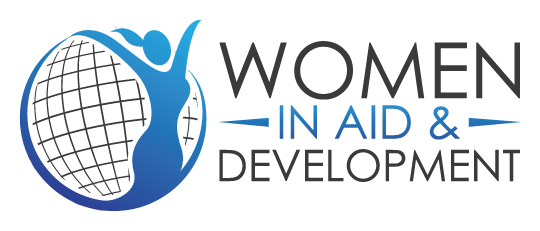The Joy of Where Development Work Takes You
This post was written by WiAD Communications Director, Jill Scanlon.
I have worked in the international development sector for almost 10 years – a late-career choice, but one that with various narratives was many years forming in my dreams.
The places I’ve visited worked and lived, not to mention the friends and relationships I’ve made, cannot be understated as having an impact on my perspectives and experiences of life, as a woman in the development sector.
In celebrating this year’s International Day of Sport for Development and Peace (IDSDP) on April 6, I want to reflect on my work with an organisation in Vanuatu and its sport for development program called Volley4Change, which is delivered to communities across the island nation.
In January this year, I had the great privilege of being one of a handful of people invited to go on a boat trip around the northern provinces of this beautiful Pacific country. Despite having lived there for a couple of years doing development work, I had never quite made it to the more remote islands and communities up north.
The week-long adventure on the Respond Global vessel HELPR-1 to kick off my 2023, was just another of those experiences – unique in itself but still following the pathway of development work in all its common endeavours.
The purpose of my presence, and that of my Vanuatu Volleyball Federation colleagues, was to take our V4C sport for development program onto the islands on which we were scheduled to stop and introduce it to the villagers and residents of these remote islands and regional areas, especially women and girls, to which we would not normally be able to travel.
Crossing the ocean for hours on end between distant small, but impressive islands like Ureparapara, Nui and Mere Lava, to name just a few were just another reason why working in the development sector can be such a fulfilling experience.
Working with HELPR-1
To explain, the HELPR stands for ‘Health Emergency Logistics Preparedness and Response’ and the HELPR-1 boat is the jewel in the crown of the program and she is based in Port Vila.
The experience we had in joining HELPR-1 on her northern provincial journey in January, allowed the V4C team to explore the potential for program delivery in the far northern provinces, both from a logistical and developmental perspective. The support from the HELPR-1 team was invaluable in getting access to these islands and provinces, but also in raising awareness of the collaboration potential between the program and various stakeholders, including provincial-level representatives, the health sector and also Respond Global’s expertise in logistics and health, relevant to the islands.
Having the good fortune, and for the most part, good weather (there’s always a cyclone looming somewhere at that time of the year), to travel to the four northern provinces – Malampa, Sanma, Torba and Penama – visiting local communities including a couple of hospitals, and being able to observe the consultation discussions between Respond Global and provincial government representatives, gave the V4C team a broad overview of the possibilities a collaboration with HELPR-1 could provide in extending the reach of the program further than ever before.
For me personally, it was yet another adventure to put on my ‘best life experiences’ list, made possible through my work in the development sector, especially incorporating my love of sport.
* V4C is an Australian government-funded sport for development (S4D) program which focuses on issues of gender empowerment, disability inclusion and health and well-being awareness through nutrition and physical activity. It promotes the theory that sport can be used as a powerful vehicle for development which can help foster outcomes in health, social cohesion, gender equality and disability inclusion. Sport provides an opportunity to engage and empower individuals, build knowledge and capacity, improve well-being and promote inclusion. In Vanuatu, sports can also help shift societal norms that have typically restricted full and equitable participation in community life for women and people with a disability.
